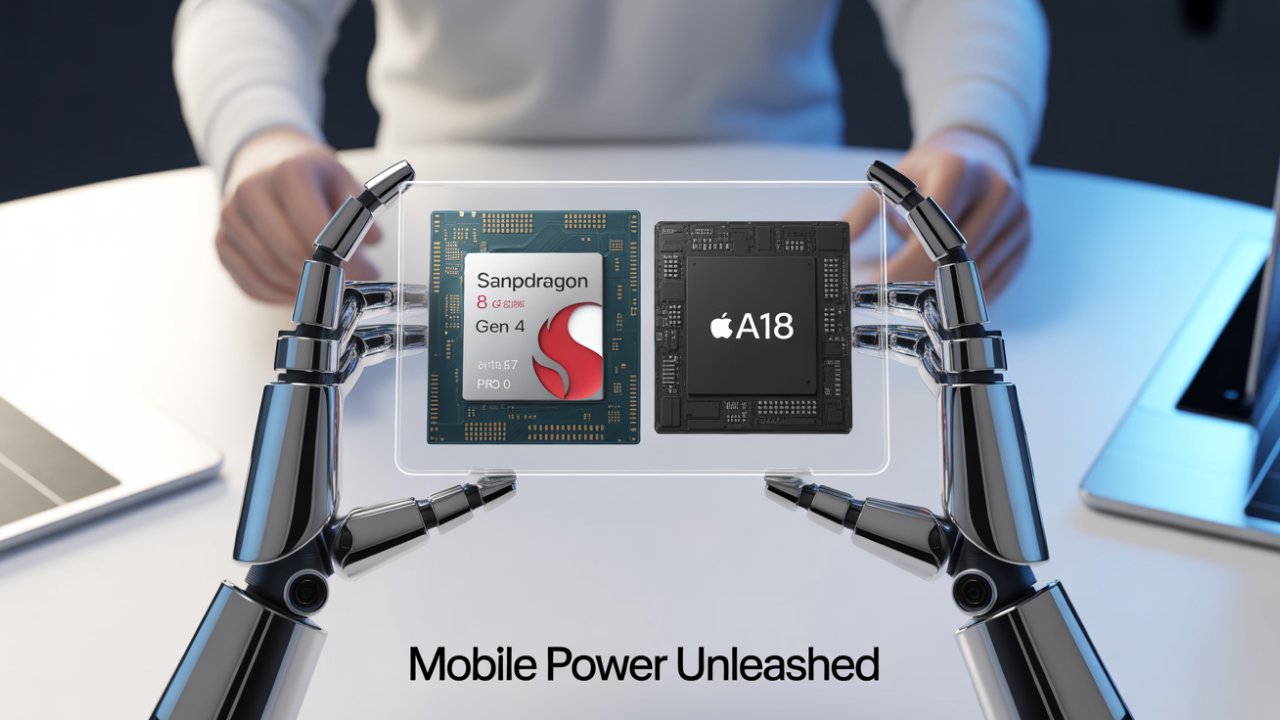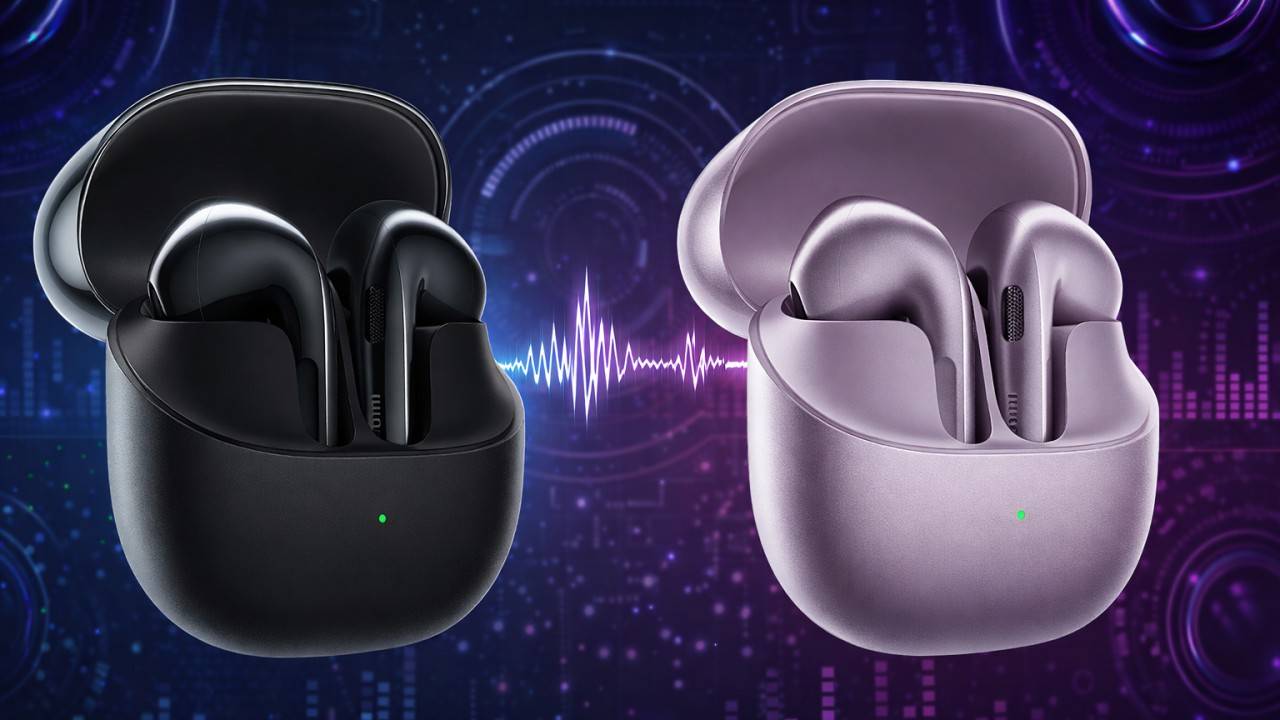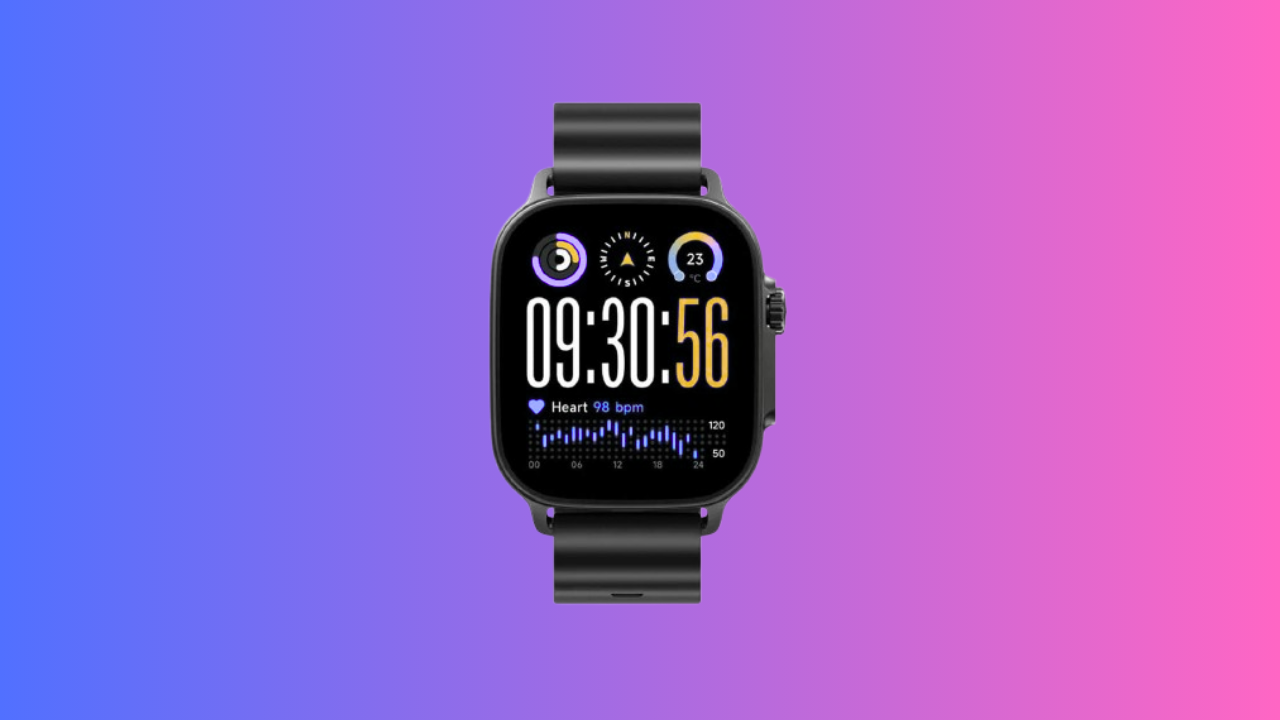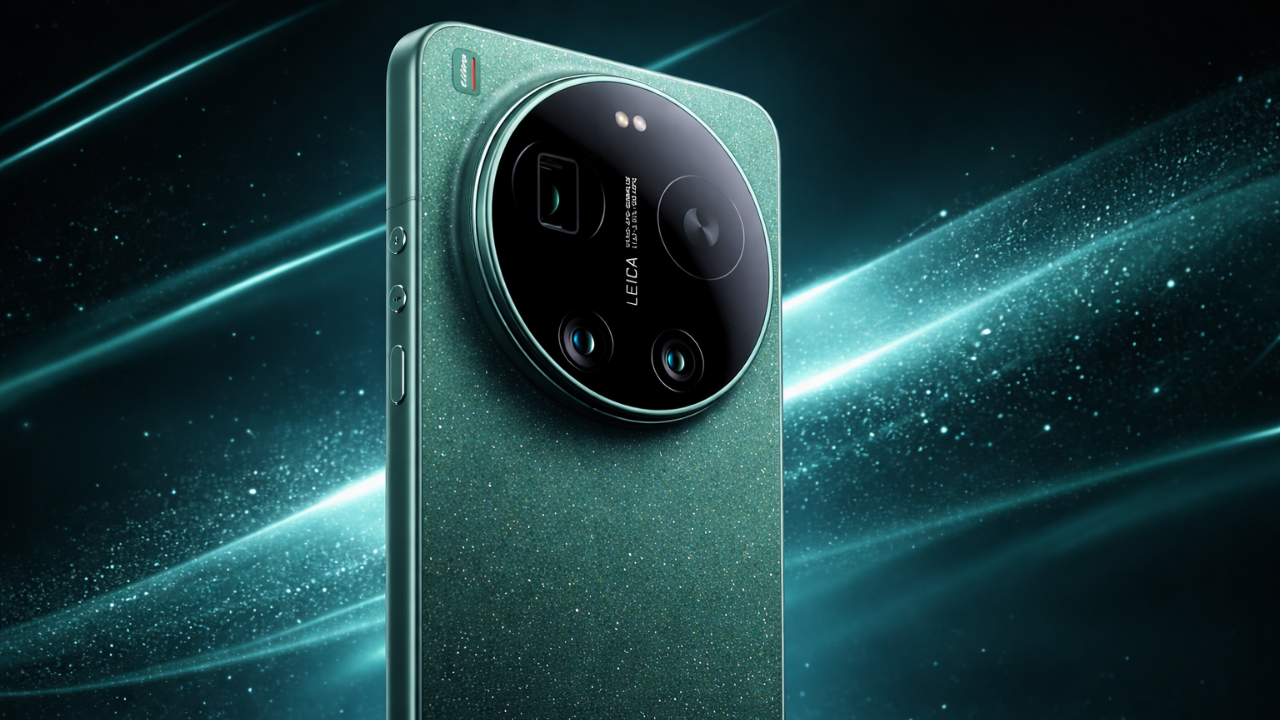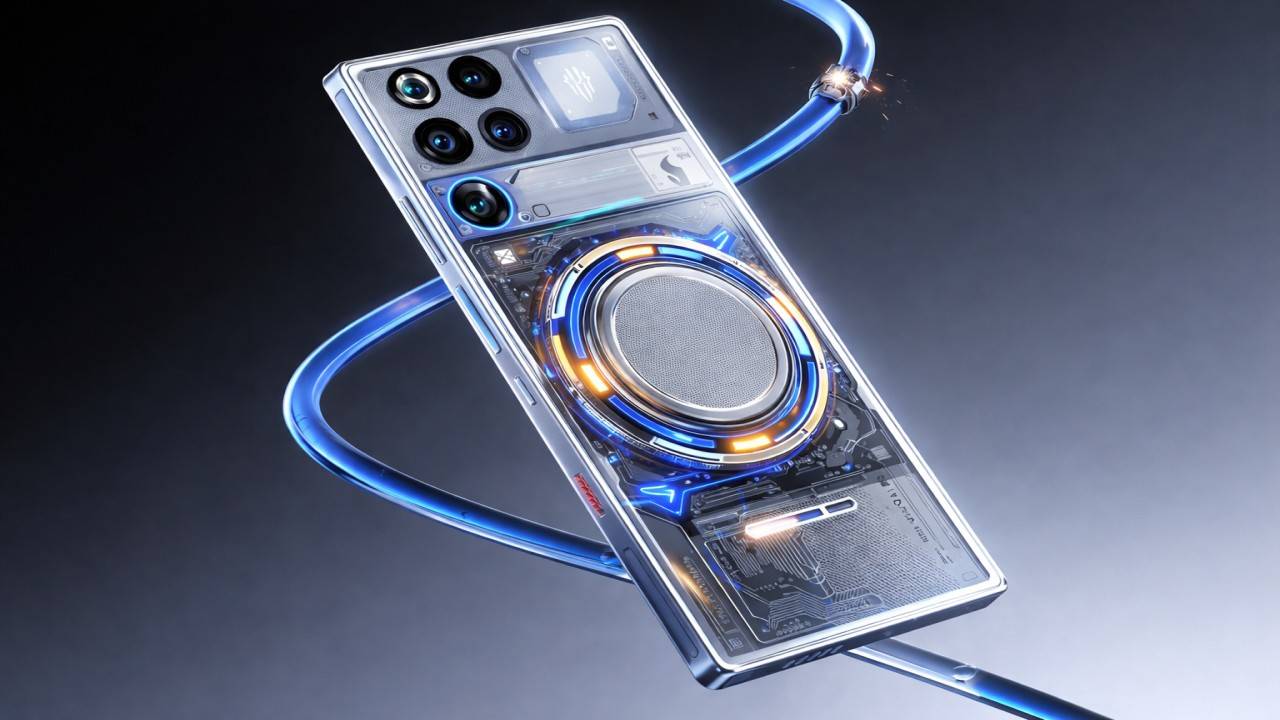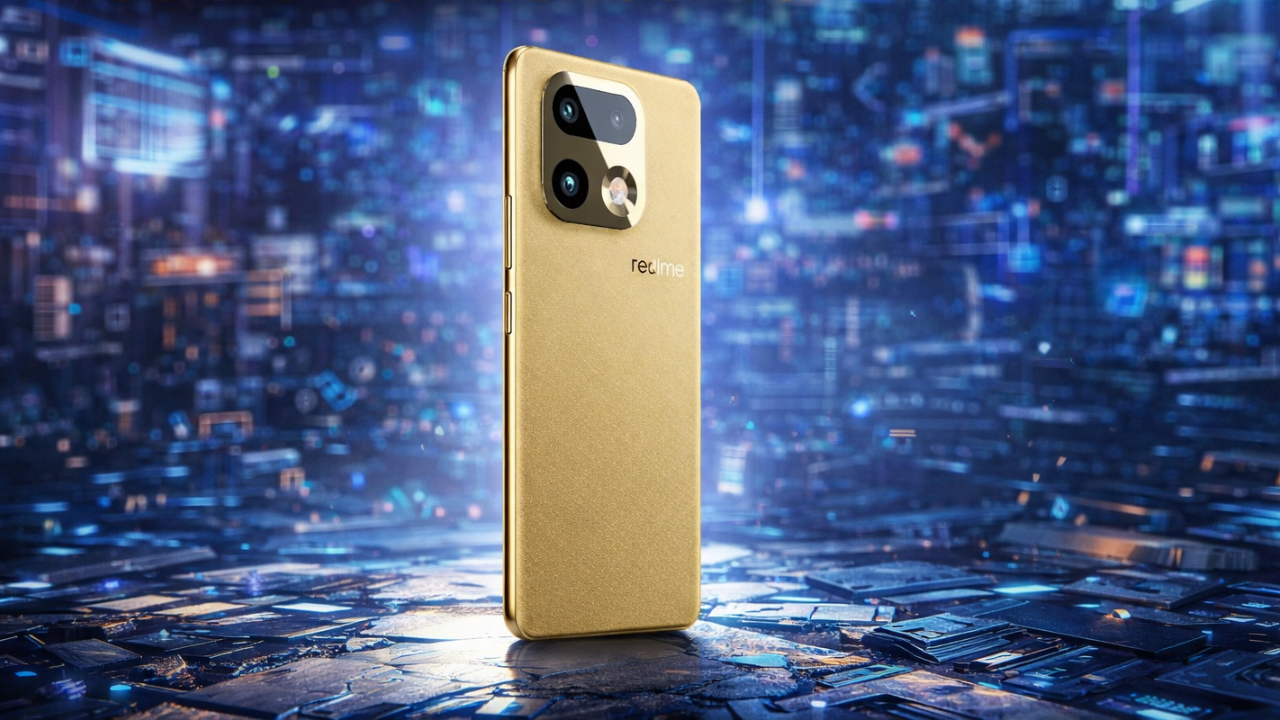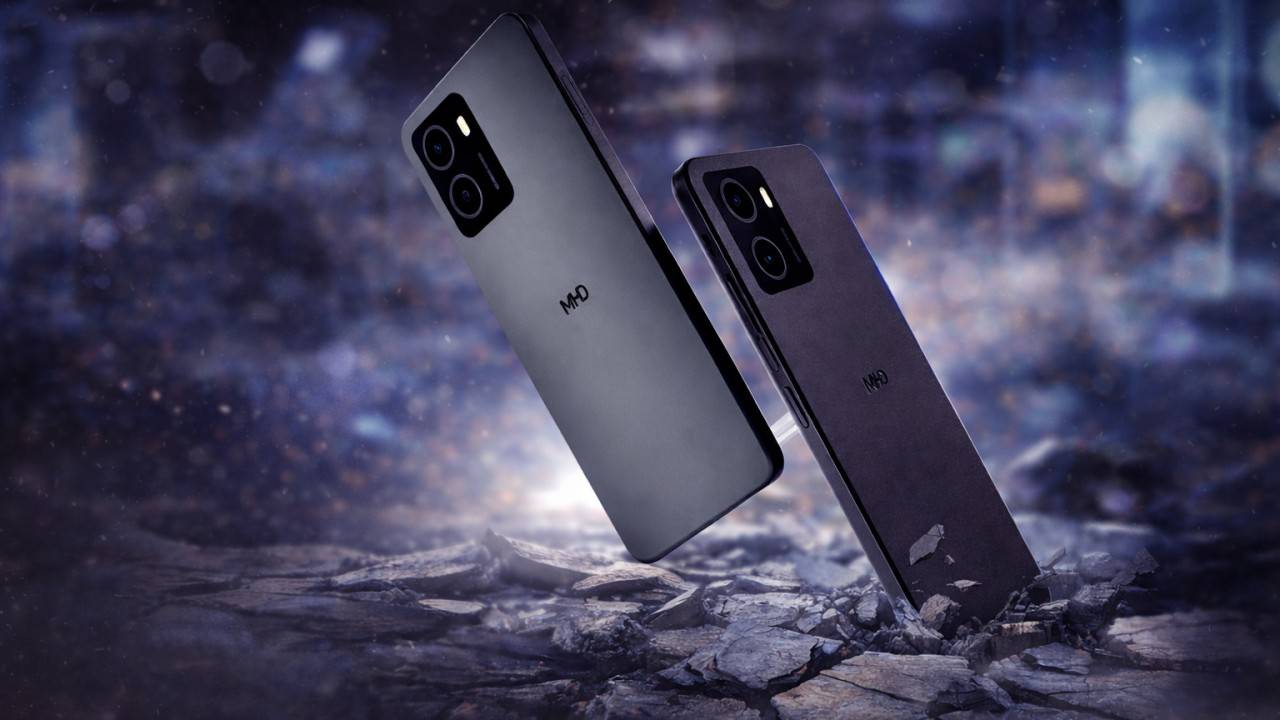Snapdragon 8 Gen 4 vs Apple A18 Pro: In the world of smartphones, the processor is the power that drives it all—gaming and photography and AI software and battery life. In 2025, the war between Qualcomm’s Snapdragon 8 Gen 4 and Apple’s A18 Pro has been its fiercest so far.
This year marks a pivotal shift. Qualcomm has finally ditched the Arm Cortex cores in favor of its custom Oryon CPU architecture, while Apple continues to refine its already dominant A-series chip with neural and GPU enhancements.
Snapdragon 8 Gen 4 vs Apple A18 Pro: But which one truly leads the race?
In this deep-dive comparison, we’ll pit the Snapdragon 8 Gen 4 against the Apple A18 Pro across performance, AI, gaming, power efficiency, benchmarks, and real-world use cases.
1. Specifications Overview
| Feature | Snapdragon 8 Gen 4 | Apple A18 Pro |
| CPU Architecture | Custom Oryon cores (Nuvia-based) | Apple’s Custom ARMv9 (2 high-performance + 4 high-efficiency cores) |
| Fabrication Process | 3nm TSMC N3E | 3nm TSMC N3B |
| GPU | Adreno 830 | Apple Custom GPU (5-core) |
| AI Engine | Hexagon NPU, Qualcomm AI Stack 3.0 | 16-core Neural Engine |
| Modem | Snapdragon X75 (5G + Wi-Fi 7) | Qualcomm X70 or Custom (in iPhones) |
| Devices | Android flagships (Xiaomi 15, OnePlus 13, Galaxy S25) | iPhone 16 Pro, iPhone 16 Pro Max |
2. CPU Performance: Oryon vs A18 Cores
Snapdragon’s move to Oryon cores in the 8 Gen 4 is its biggest advance in CPU design in years. Based on the Nuvia architecture (a firm founded by ex-Apple engineers), these cores are intended to face Apple’s monolithic custom silicon head-on.

Snapdragon 8 Gen 4 CPU Features:
- Total-performance core configuration (no efficiency cores).
- Clock speeds are reportedly up to 4.2 GHz.
- Massive multi-threaded performance benefits (up to 40% better than 8 Gen 3).
Apple A18 Pro CPU Features:
- 2+4 core balanced design.
- Efficiency and thermal design emphasis.
- Single-core Geekbench scores are still industry-leading.
Snapdragon 8 Gen 4 vs Apple A18 Pro: Conclusion
- Snapdragon 8 Gen 4 takes the lead in multi-core processing and heavy multitasking.
- Apple A18 Pro retains its throne in single-core processes, app responsiveness, and UI smoothness.
3. GPU & Gaming Performance
The Adreno 830 in Snapdragon 8 Gen 4 is Qualcomm’s most aggressive GPU to date, offering a 30% boost in performance compared to the previous one.

Snapdragon Gaming Features:
- Supports Ray Tracing v2.0, Vulkan 1.3, and OpenGL ES 3.2.
- Better sustained GPU performance with enhanced heat management.
- Supports Snapdragon Game Super Resolution and AI frame interpolation features.
Apple A18 Pro Gaming Features:
- 5-core GPU with built-in support for ray tracing.
- MetalFX Upscaling & Mesh Shading are now standard in AAA titles (e.g., Resident Evil Village).
- Better power-to-performance.
Real-World Gaming Test (Same Game, 60 min):
Snapdragon 8 Gen 4 vs Apple A18 Pro: Genshin Impact on Max Settings (1080p)
- Snapdragon 8 Gen 4: 59.1 FPS avg, hotter
- Apple A18 Pro: 58.3 FPS avg., cooler and more stable
Snapdragon 8 Gen 4 vs Apple A18 Pro: Verdict
Snapdragon 8 Gen 4 is a champion of raw FPS and graphical brawn, outpacing Apple A18 Pro in these aspects. Apple’s A18 Pro is better in efficiency and thermal management.
4. AI & On-Device Intelligence
2025 is the year of on-device AI, and both chips are at the forefront of the revolution.

Snapdragon 8 Gen 4 AI Features:
- Qualcomm AI Stack 3.0 for LLM-optimized (like Gemini Nano).
- On-device real-time video translation, photo editing, and on-device document summarization.
- Handles up to 20 billion parameters on-device (Gemini Nano-like models).
Apple A18 Pro Neural Engine:
- 16-core Neural Engine with 60% AI tasks accelerated compared to A17 Pro.
- Features of Apple AIs include image generation, intelligent responses, and on-device Siri.
- Built-in across iOS 18’s application ecosystem.
Snapdragon 8 Gen 4 vs Apple A18 Pro: AI Benchmarking
- AI Mark 25: Snapdragon 8 Gen 4 marked 21000+
- Apple A18 Pro: Scores ~17500, but takes the win in integration and latency
Snapdragon 8 Gen 4 vs Apple A18 Pro: Verdict
Snapdragon has more efficiency and flexibility in brute AI power, but Apple takes the win in real-world integration and stability.
5. Efficiency & Thermals

While both chips are built on TSMC’s 3nm node, Apple A18 Pro uses N3B, a higher but less power-sipping node for volume production, while Snapdragon 8 Gen 4 uses price-efficient N3E.
Apple’s efficiency remains unbeaten because of tight integration with iOS.
Snapdragon chips heat up more easily, especially under sustained load.
Power consumption during gaming is 15–20% higher on 8 Gen 4.
Snapdragon 8 Gen 4 vs Apple A18 Pro: Battery Life Comparison
- iPhone 16 Pro Max: 8–9 hours SoT
- Xiaomi 15 Pro: 6.5–7.5 hours SoT
Snapdragon 8 Gen 4 vs Apple A18 Pro: Verdict
Apple’s A18 Pro still rules battery life, though Snapdragon narrowed the gap.
6. Modem & Connectivity Performance
Both chips use industry-leading 5G modems, but Qualcomm edges ahead due to its Snapdragon X75.

Snapdragon 8 Gen 4:
- Snapdragon X75 modem
- 5G Advanced ready (future-proof for 6G transition)
- Wi-Fi 7 support
- Reduced latency and faster uplinks
Apple A18 Pro:
- Probably sporting a custom X70 modem (Qualcomm-based)
- Reports are that Apple-designed modem still lagging behind
- Wi-Fi 6E / Wi-Fi 7 depending on region
Snapdragon 8 Gen 4 vs Apple A18 Pro: Verdict
Snapdragon is ahead with modem tech and wireless standards, making it more future-proof towards networks.
7. Roundup of Benchmarks
| Benchmark | Snapdragon 8 Gen 4 | Apple A18 Pro |
| Geekbench 6 (Single-core) | ~2200 | 2900 |
| Geekbench 6 (Multi-core) | 7500–8000 | ~7400 |
| AnTuTu 10 | 2.3M–2.5M | ~2.1M |
| 3DMark Wild Life Extreme | >5200 | ~4500 |
| AI Benchmark | 21000+ | ~17500 |
Snapdragon 8 Gen 4 vs Apple A18 Pro: Verdict
- Apple still dominates single-core and thermal throttling.
- Snapdragon leads in AI, multi-core, and graphics power.
8. Real-World Applications: Who Picks What?
Select Snapdragon 8 Gen 4 if:
- You require the highest multi-core performance and AI processing.
- You are looking for high-end gaming and camera-focused Android smartphones.
- You need flexibility with Android customizations and AI LLMs.
Select Apple A18 Pro if:
- You prefer software-hardware optimized synergy.
- You desire best-in-class battery life and heat management.
- You are in the Apple ecosystem and enjoy iCloud, AirDrop, etc.
Final Verdict: Snapdragon 8 Gen 4 vs Apple A18 Pro
| Category | Winner |
| CPU – Single Core | Apple A18 Pro |
| CPU – Multi Core | Snapdragon 8 Gen 4 |
| GPU & Gaming | Snapdragon 8 Gen 4 |
| AI & On-Device Intelligence | Snapdragon 8 Gen 4 (Raw) / Apple (Integration) |
| Power Efficiency | Apple A18 Pro |
| Connectivity | Snapdragon 8 Gen 4 |
| Real-World Integration | Apple A18 Pro |
Final Verdict: The Best Mobile Chip in 2025?
The Snapdragon 8 Gen 4 finally puts Qualcomm toe-to-toe with Apple, especially in AI and gaming. Its Oryon cores, Adreno 830, and AI stack are a leap forward.
However, the Apple A18 Pro continues to dominate in efficiency, single-core speed, and ecosystem synergy. In the end, both chips are technological marvels, and the choice depends more on whether you’re buying a flagship Android or a Pro iPhone.

